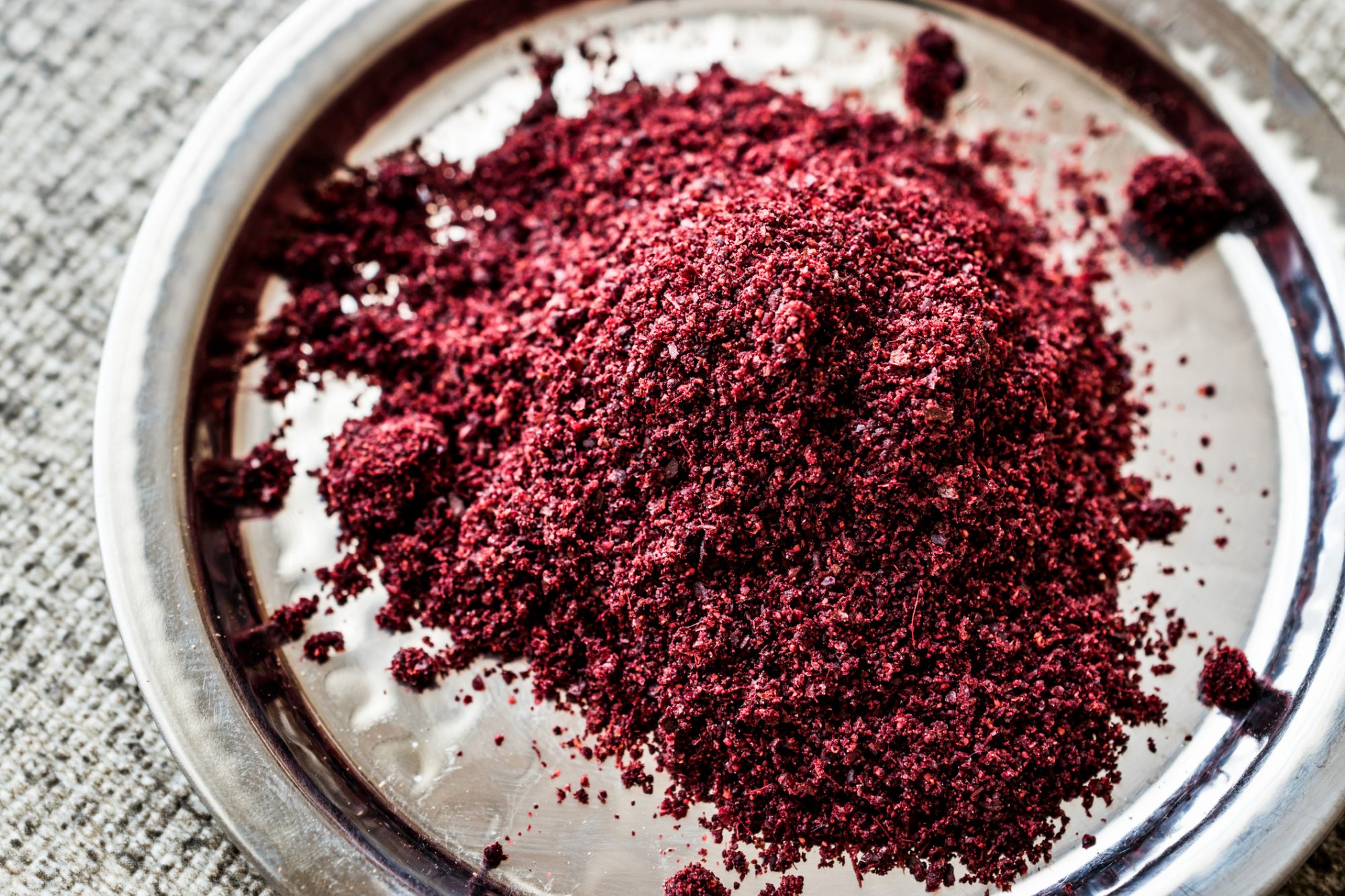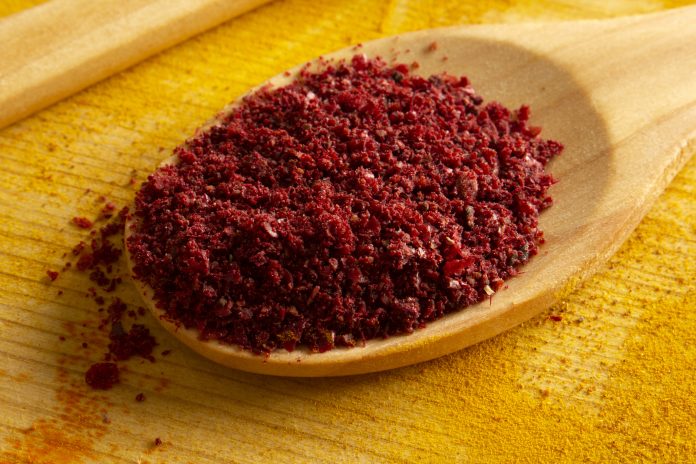Life expectancy is declining in many UK communities – and diet is central to this. Declining nutritional value of our food means we need more high-value substances like sumac in our daily lives
Ask most Britons about Sumac, and they won’t have heard of it. This red wine-coloured spice is a staple condiment across the Middle East, but in the UK, our exposure is limited unless we’re avid followers of Yotam Ottolenghi, says Researcher James Fox, Founder and CEO at Sumacqua Drinks.
The declining nutritional value of fruit and vegetables
That may sound obvious, but this problem is compounded by the fact that many of the healthy eating guidelines in the UK are woefully out of date.
For one, the ‘five a day’ guideline was never enough – most Britons don’t even hit these targets – and amid declining nutrient contents, we need to eat even more – you’d have to eat four carrots today to get the same magnesium content as you did in 1940.

In this context, I believe it’s right that we renew our focus on nutrition. And one area I’m particularly interested in is spices, and sumac especially. This tangy citrus spice, which is widely used throughout Levantine cooking, is also the most antioxidant-dense of all comestibles.
The most antioxidant-dense of all comestibles
Research surrounding the potential health benefits of sumac is relatively nascent – unlike turmeric – but it’s very positive. So, let’s take a closer look at what the research is telling us.
What the research is telling us about Sumac
Like turmeric, sumac has long been associated with positive health outcomes. But we’re only starting to see the research to back that up today. Sumac is known for its rich antioxidant content, particularly in the form of flavonoids and polyphenols.
Sumac has long been associated with positive health outcomes
Some of the specific antioxidants found in sumac include gallic acid – a phenolic compound which helps neutralize free radicals and reduce oxidative stress – quercetin – a flavonoid known for its anti-inflammatory properties and can also reduce oxidative stress – and kaempferol – another flavonoid with anti-inflammatory and anticancer health benefits. Other antioxidants include myricetin and rutin.
But what does the research tell us about the spice as a whole? Well, while the research is nascent, studies have been conducted linking sumac with a wide range of health benefits and positive health outcomes.
Sumac and its effects on serious illnesses
Firstly, we can observe several studies linking the spice to positive health outcomes in relation to serious illness.
Studies have suggested that sumac may help regulate blood sugar levels and improve insulin sensitivity. This could be beneficial for individuals with diabetes – a growing issue around the world – or those at risk of developing the condition.
Furthermore, preliminary research suggests that sumac may possess anticancer properties. Certain compounds in sumac have shown inhibitory effects on cancer cell growth and have been studied for their potential as natural anticancer agents.
It doesn’t stop there. A 2011 study suggested sumac may help in fighting cholesterol, while a 2015 research project demonstrated that sumac could help reduce bone loss.
These studies complement broader works which highlight the spice’s potential health benefit against a range of conditions caused by inflammation, including migraines which are characterised by increased oxidative stress and neurogenic inflammation in the brain.
In addition, we know that sumac can reduce muscle pain during and after aerobic exercise – perhaps something that could benefit us all manifestly on a daily basis. A 2016 study showed that a group of subjects receiving a sumac juice drink experienced less pain than a placebo group.

Sumac is a good source of vitamins, minerals, and dietary fibre. It contains vitamin C, vitamin A, potassium, calcium, and magnesium, among others, which are essential for overall health and well-being.
We know that sumac has been used traditionally to aid digestion
While we don’t know for sure, it has been suggested that sumac can stimulate the production of digestive enzymes, such as amylase, lipase, and protease. These enzymes play a crucial role in breaking down carbohydrates, fats, and proteins, respectively, aiding in their digestion and absorption.
It has been suggested that sumac can stimulate the production of digestive enzymes
And finally, it is understood that certain compounds in sumac, such as tannins, may possess antimicrobial properties, helping to combat harmful bacteria and fungi.
Sumac can be used in various culinary applications to enhance the flavour of dishes. But it’s not widely used in the UK, especially not in traditional British food. In Levantine cooking, it is often sprinkled over salads, hummus, or yogurt-based dips like tzatziki for a tangy and citrusy flavour.
But it’s a very versatile spice, and one we can easily introduce into our diets, even if we’re not into our Levantine foods. Sumac works well as a seasoning for grilled meats, such as chicken, beef, or lamb – sprinkle it over marinated meats or use it in spice rubs to add a unique flavour – and can also be used to season roasted vegetables.
But there’s really no limit to its use. Sumac can also provide a delicious counterpunch when added to soups and stews.
Of course, as with everything nowadays, we can also buy it in pill and even drink form, showing just how easily we can bring this powerful disease-fighting spice into our diets on a daily basis.
This piece was written and provided by Researcher James Fox, Founder and CEO at Sumacqua Drinks.











